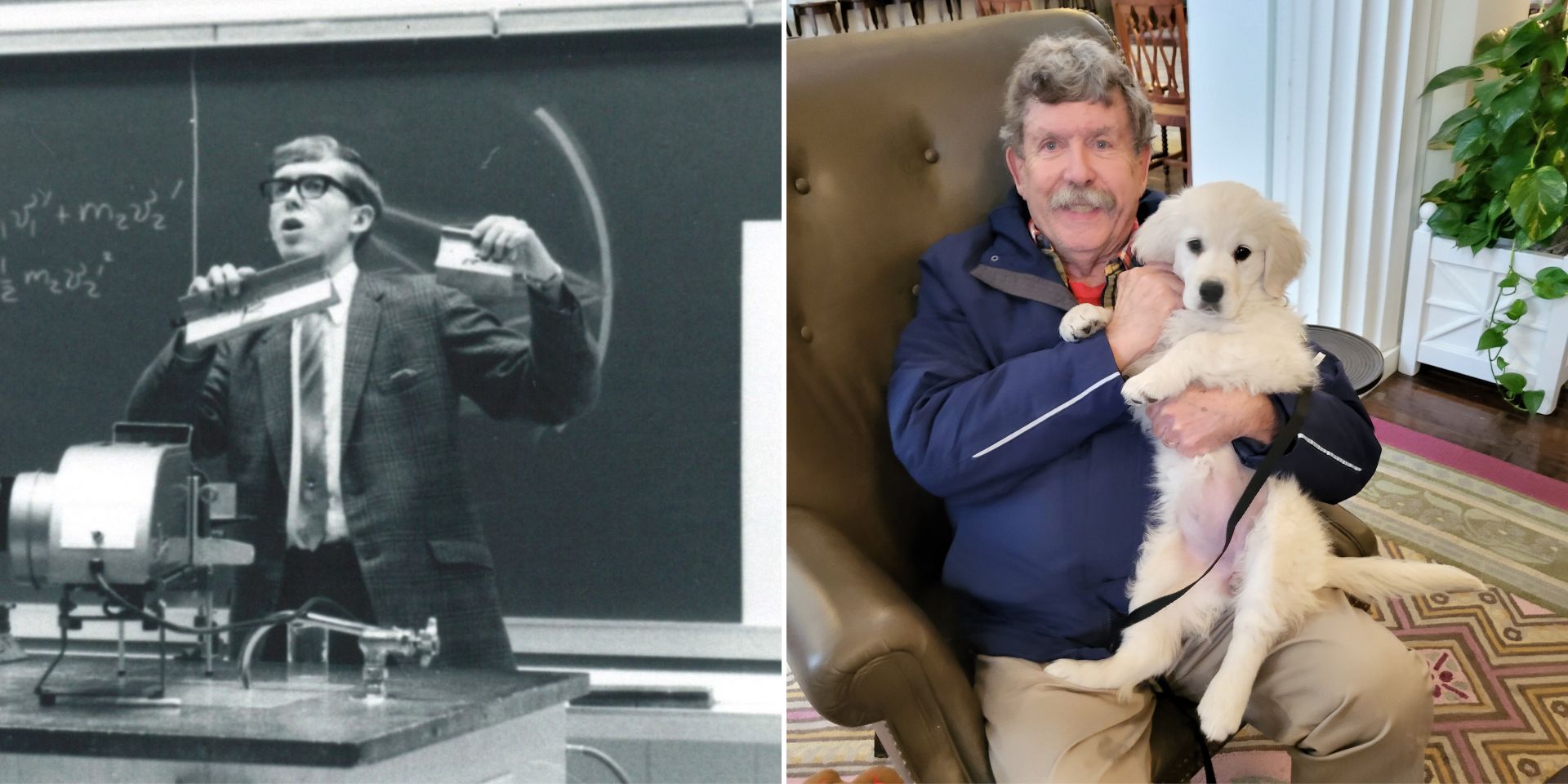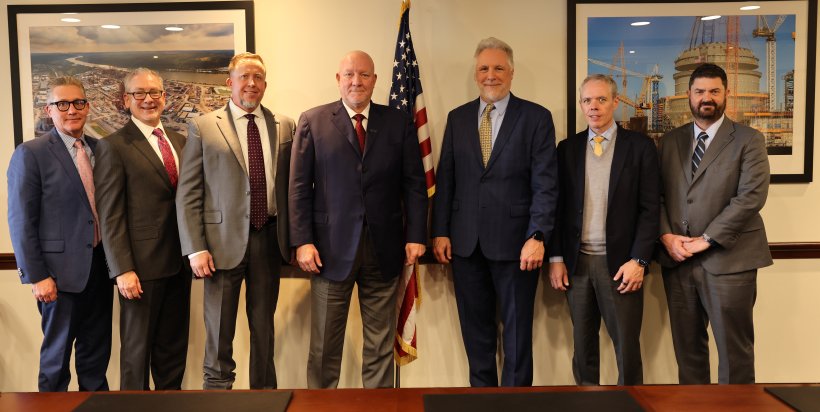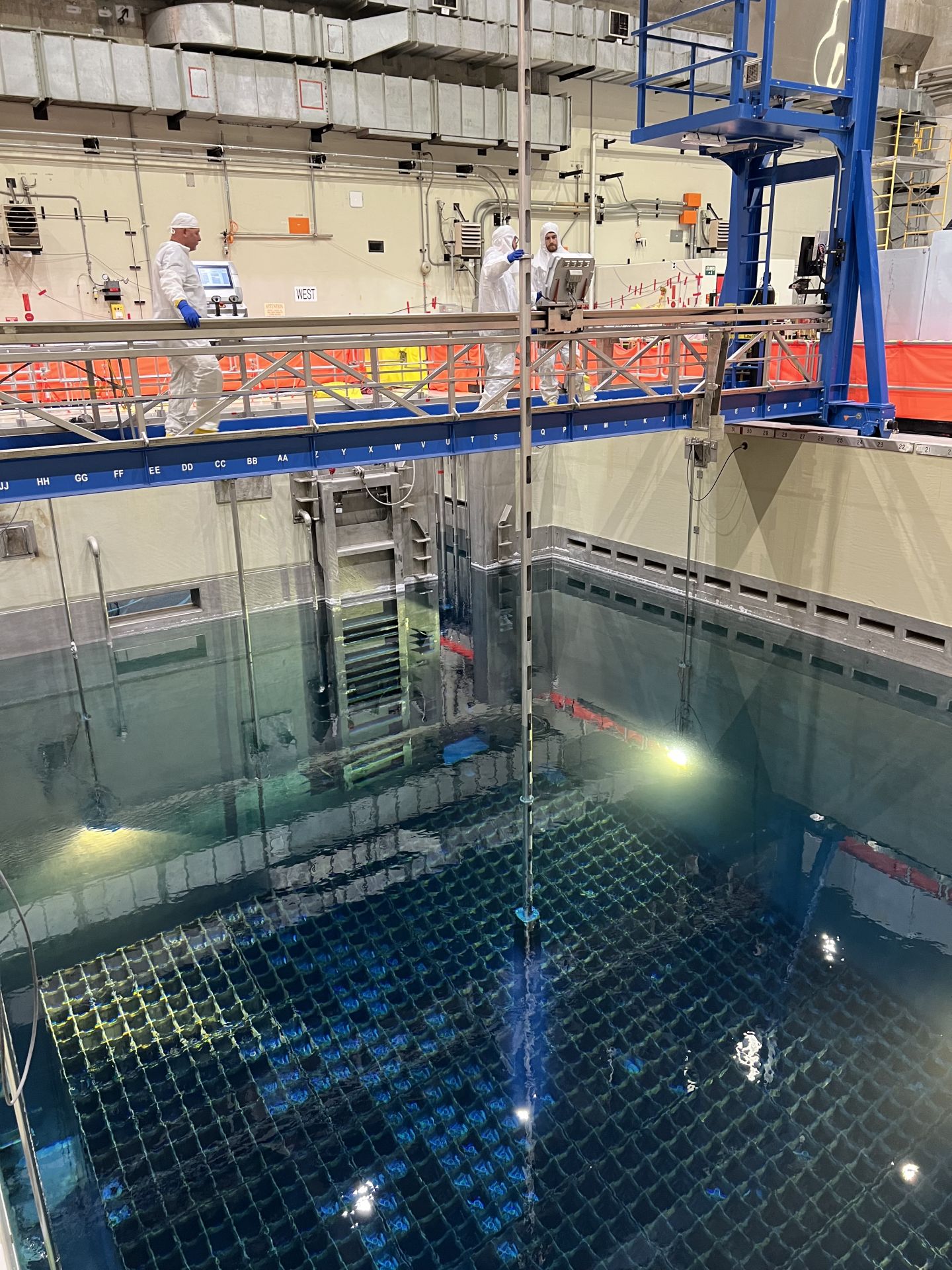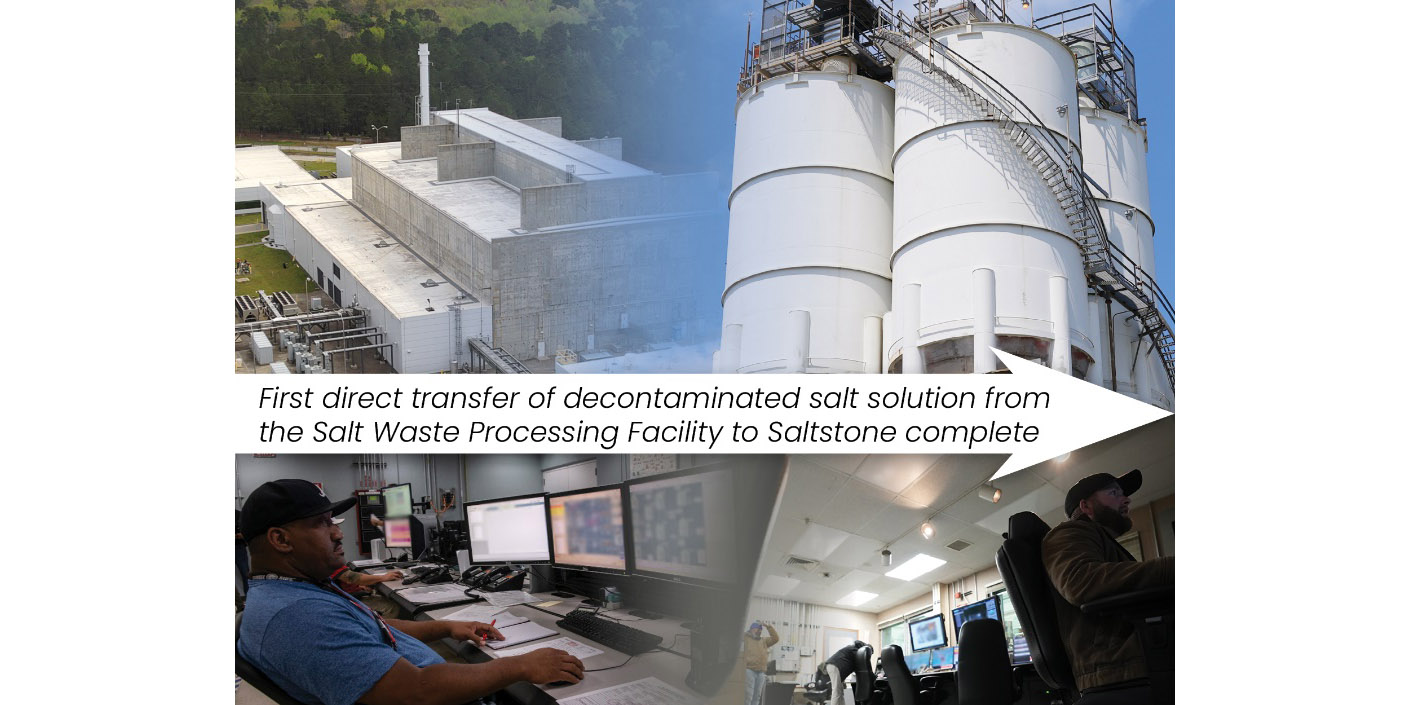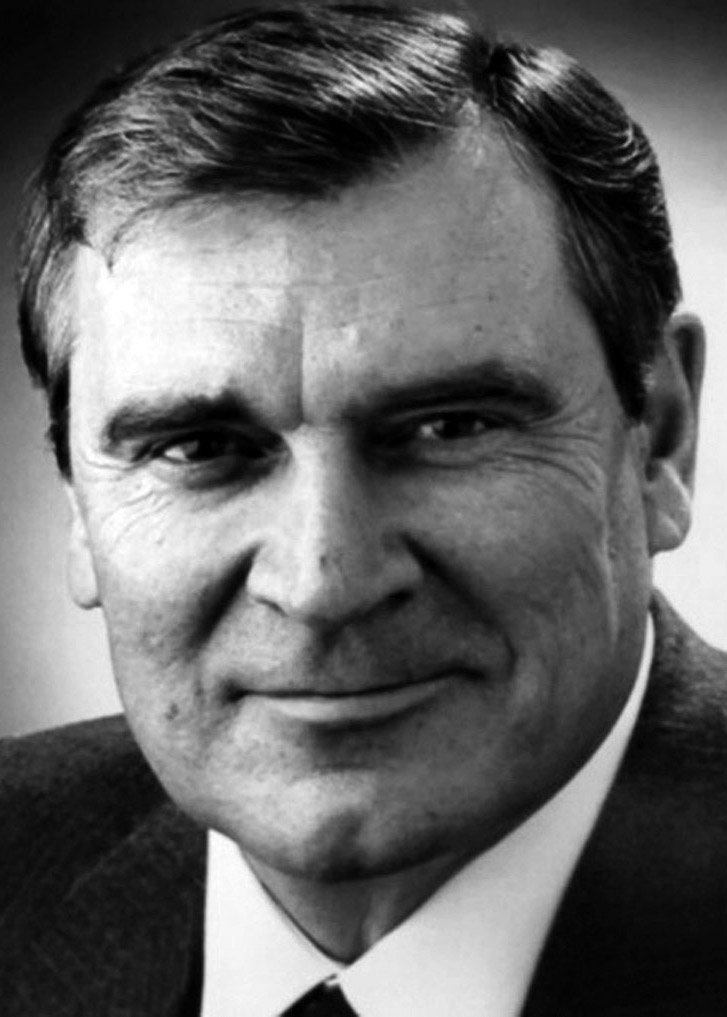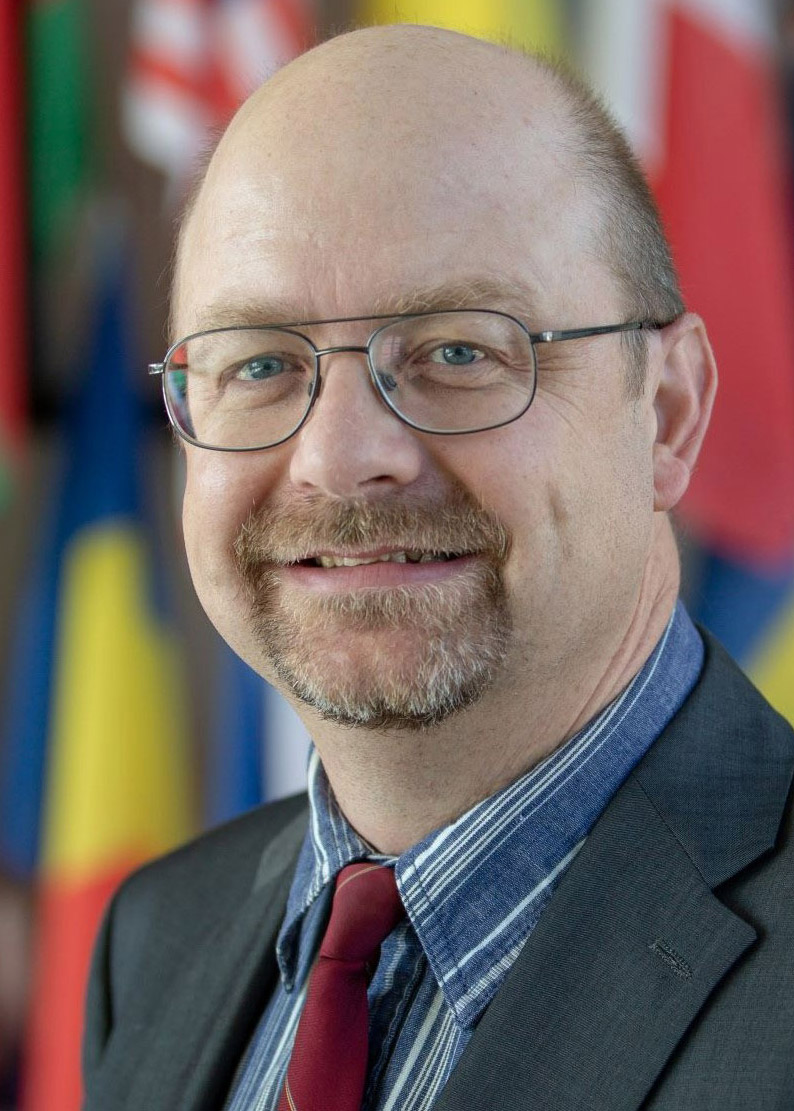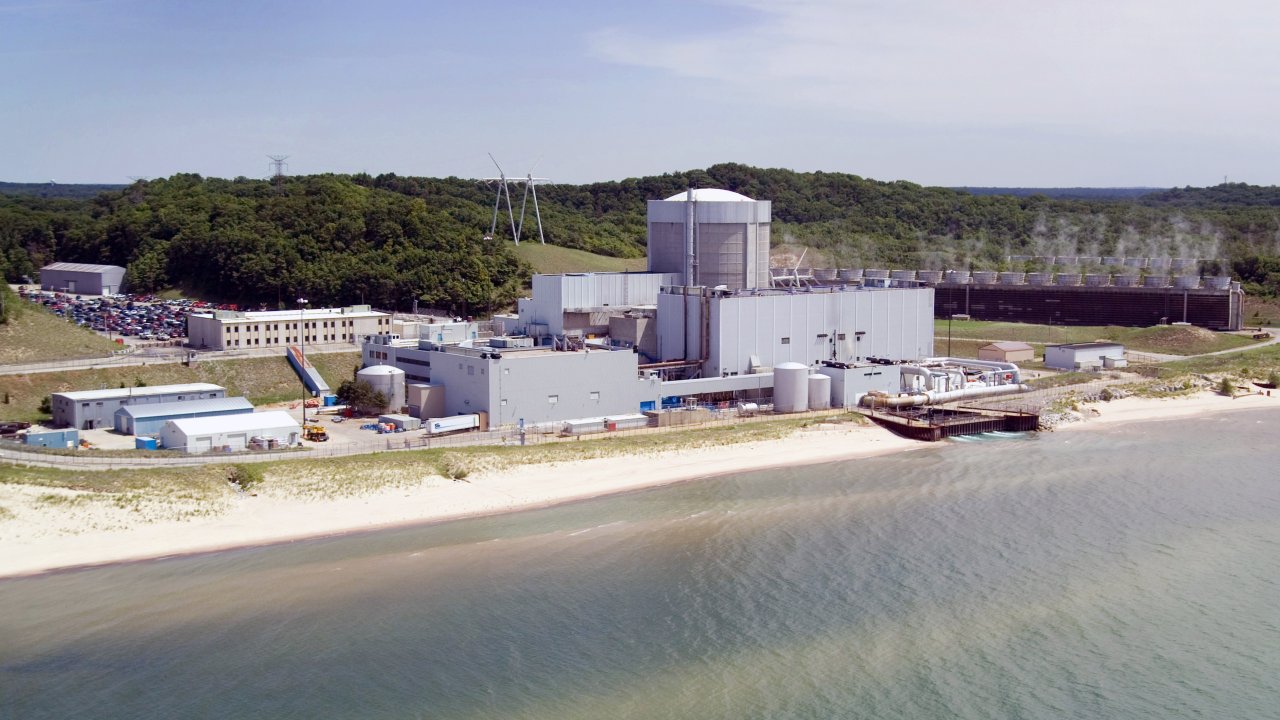SRNS’s Sean Alford (standing) discusses career opportunities with Winthrop University faculty and staff during a tour of the Savannah River Site. (Photo: SRNS)
Faculty and staff from Winthrop University recently toured the Department of Energy’s Savannah River Site as part of a workforce development partnership.
Left: Behrens as a physics lecturer in 1969 at the University of Illinois—Urbana-Champaign. Right: Behrens at home today with his new pup Snowflake.
We welcome ANS members who have careered in the community to submit their own Nuclear Legacy stories, so that the personal history of nuclear power can be captured. For information on submitting your stories, contact nucnews@ans.org.
The James Wm. Behrens family legacy in America starts with Henry H. Behrens, who came across the pond from Germany in 1857. He was later joined by Wilhelmina, also from Germany, and they were married in Alton, Ill., in about 1862. One of their sons, George Wm. Sr., was my grandfather. He and his wife, Frances Walker (of Irish and English descent), had three sons, one of whom (George Wm. Jr.) was my father. I was born in 1947 and raised in the small country town of Bunker Hill, Ill. I attended Bunker Hill elementary and high schools, graduating from the latter in 1965.
From left, Erik Olds, OREM deputy manager; Jay Mullis, OREM manager; Brandon Bishop, NABTU secretary-treasurer; Sean McGarvey, NABTU president; Ken Rueter, UCOR president and CEO; William “Ike” White, DOE-EM senior advisor; and Jeff Avery, DOE-EM principal deputy assistant secretary.
The Department of Energy’s Office of Environmental Management announced the signing of a project labor agreement (PLA) between Oak Ridge Office of Environmental Management (OREM) contractor UCOR and North America’s Building Trades Unions (NABTU). The agreement, which allows for flexibility in wage increases and other incentives, is expected to help recruit and retain skilled construction trade workers at the DOE site in Tennessee.
John Hill, deputy director for science and technology at BNL, with Ruqaiyah Patel, deputy director of UKRI North America, at a recent reception held by UKRI's North America office to mark the funding of the EIC. (Photo: BNL)
The U.S. Department of Energy is constructing the Electron-Ion Collider (EIC) at Brookhaven National Laboratory to explore the boundaries of nuclear physics—both for the sake of science and to support diverse applications, including in nuclear medicine, radiation safety, and nuclear energy. The project, already supported by international collaborators in 40 countries, just secured a significant commitment from the United Kingdom.
March 18, 1925–December 26, 2023
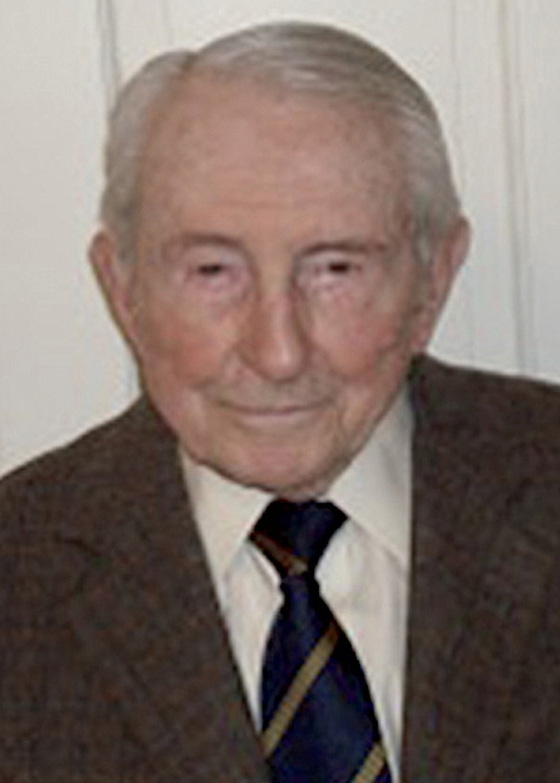
Joseph M. Hendrie
To those of us who knew Joe, even prior to his appointment as chair of the Nuclear Regulatory Commission, it is an understatement to say that he was a larger-than-life member of the nuclear science and technology enterprise. He was best known to the broader community for two major accomplishments: the design and construction of the High Flux Beam Reactor (HFBR) at Brookhaven National Laboratory and the creation of the standard review plan (SRP) for the U.S. Atomic Energy Commission.
In addition to the products of these endeavors becoming major fundaments to their respective communities, they were uniquely Joe. The safety analysis report for the HFBR was written essentially single-handedly by him. This was true of the SRP as well, which became the key safety review document for the NRC as it performed safety reviews for the growing number of power reactor applications in the United States. His deep technical knowledge of nuclear engineering and his extraordinary management skills made this possible.
SRS successfully made the first transfer of decontaminated salt solution directly from one waste processing facility to the other, bypassing a hold tank previously used in the transfer process. (Photo: DOE)
The Department of Energy Office of Environmental Management’s liquid waste contractor at the Savannah River Site this month marked the first direct transfer of decontaminated waste from the Salt Waste Processing Facility (SWPF) to the Saltstone Production Facility (SPF). This is a new step in optimizing waste processing, according to the DOE.
Irradiation of test fuel at SCK-CEN's BR2 reactor in Belgium. (Photos: KAERI)
The Korea Atomic Energy Research Institute has developed a high-density uranium silicide fuel designed to replace high-enriched uranium in research reactors. Recent irradiation tests appear to be successful, KAERI reports, which means the fuel could be commercialized to continue a key global nuclear nonproliferation effort—converting research reactors to run on low-enriched uranium fuel.
The Palisades nuclear power plant in Covert Township, Mich.
The Department of Energy’s Loan Programs Office (LPO) today announced a conditional commitment of up to $1.52 billion for a loan guarantee to Holtec Palisades LLC to finance the restoration and resumption of service of the 800-MWe Palisades nuclear power plant in Covert Township, Mich.
Nuclear Science and Technology professionals share thoughts on repowering Palisades nuclear power plant
WASHINGTON, D.C. — The American Nuclear Society (ANS), a nonprofit representing over 10,000 professionals in the fields of nuclear science and technology, issued the following statements regarding today’s announcement of a $1.5 billion loan guarantee from the U.S. Department of Energy (DOE) for repowering the shuttered Palisades nuclear power plant in Covert Township, Michigan.



